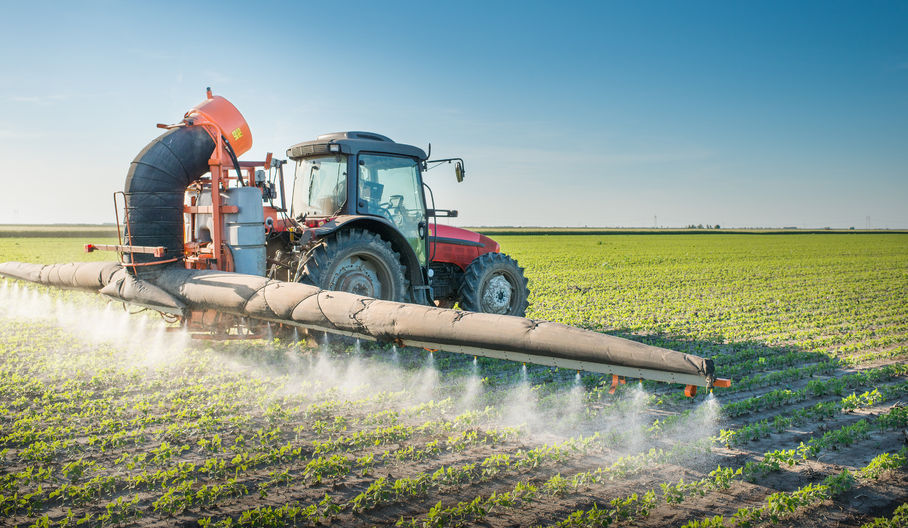 مبيدات الآفات
مبيدات الآفات
دفع تنامي الطلب على الأغذية بالمنتجين إلى الحفاظ على جودة ثرواتهم الحيوانية ومحاصيلهم بأكبر قدر من الكفاءة. وقد ينطوي ذلك على استخدام المبيدات. إلا أن استخدام تلك المنتجات على المحاصيل قد يعرض المستهلكين إلى مواد كيميائية ضارة من خلال المخلفات التي تبقى لدى تربية الحيوان أو لدى تجهيز المحصول. أما تعيين الحدود القصوى لمستوى تلك المخلفات فيضمن أن تكون الأغذية مأمونةً للاستهلاك.

دور الدستور الغذائي في مجال مبيدات الآفات
بغية حماية صحة المستهلك، عينت معظم البلدان حدوداً قانونية قصوى لمخلفات المبيدات في الأغذية. ولكن قد تنشأ صعوبات على مستوى التجارة حين تختلف الحدود المعتمدة بين بلد وآخر.
وإن لجنة الدستور الغذائي المعنية بمخلفات المبيدات (CCPR)، مسؤولة عن تعيين الحدود القصوى لمستوى المخلفات للدستور الغذائي في أغذية محددة أو في مجموعات للأغذية أو الأعلاف تنتقل في سياق التجارة الدولية.
قبل تعيين حدود قصوى لمستويا المخلّفات من قبل الدستور الغذائي، يجب إجراء تقييمات للمخاطر على الصحة البشرية للتأكد من أن الإمدادات الغذائية مأمونة. وإن الاجتماع المشترك بشأن مخلفات المبيدات مسؤول (JMPR) عن استعراض التقارير عن السمية والبيانات المستقاة بشكل رئيسي من التجارب الخاضعة للإشراف والتي تعكس استخدام المبيدات المسموح بها تماشياً مع "الممارسات الزراعية الجيدة." ويجري الاجتماع المشترك بشأن مخلفات المبيدات تقييمات للمخاطر الغذائية ويوصي لجنة الدستور الغذائي بحدود قصوى لمستويات المخلفات المحددة.
ولكي تصبح المادة الكيميائية أو السلعة المعينة قابلةُ لاستعراضها من جانب الاجتماع المشترك بشأن مخلفات المبيدات فيجب أن يقوم بلد عضو بتعيينها لدى مجموعة العمل الإلكترونية المختصة بالأولويات والتابعة للجنة الدستور الغذائي المعنية بمخلفات المبيدات
النصوص ذات الصلة بالدستور الغذائي
أخبار

CCPR / Meeting concludes “Another successful gathering of the experts on pesticides”

CCPR55 / A productive and efficient committee with sense of warm collaboration and mutual respect

CCPR / Committee plays an increasingly important role in development of international food safety system

Codex in Mauritius / Learning from others

CCPR / a significant influence on the development of national pesticide residue standards

WTO / new publication recommends land-locked developing countries actively participate in Codex
وقائع رئيسية
- يعيّن الدستور الغذائي الحدود القصوى (MRLs) لمستويات المبيدات في محاصيل الأغذية والأعلاف من أجل توفير مواصفات لسلامة الأغذية ورعاية التجارة الدولية. كما تقوم منظمة الأغذية والزراعة مع منظمة الصحة العالمية بوضع معايير للمبيدات من أجل تحديد مواصفات لجودة المبيدات وحماية المستهلكين والبيئة من استخدام منتجات أقل من المعيار المطلوب.
- قام الدستور الغذائي بتحديد أكثر من 4300 حدٍ أقصى لمستوى المخلفات بما يشمل حوالي 200 مبيد.
- وتروج منظمة الأغذية والزراعة للإدارة المتكاملة للآفات (IPM) باعتبارها النهج المفضل لإدارة الآفات.
- وتشجع منظمة الأغذية والزراعة ومنظمة الصحة العالمية على تنفيذ مدونة السلوك الدولية لإدارة مبيدات الآفات.
التشريعات المتعلقة بالمبيدات وتوسيمها
يشرح السيد Harry Van der Wulp كيف تم تحديث الخطوط التوجيهية للتشريعات المتعلقة بالمبيدات من أجل التشديد على أن إدارة المبيدات تتخطى حدود الزراعة لتشمل كذلك وزارتي الصحة والبيئة.


